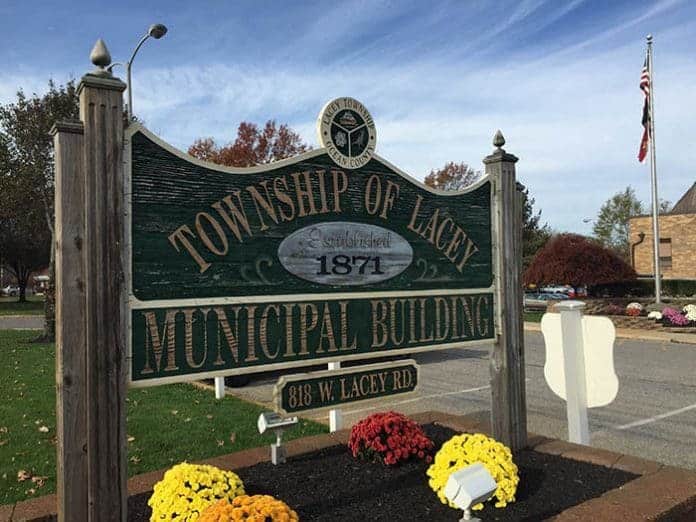
LACEY – Township officials voted to adopt the 2022 spending plan during their recent Committee meeting.
Township Business Administrator/Clerk Veronica Laureigh noted the 2022 spending plan has been published on its website and has the total appropriations (the total the township is spending) as $37,246,907.
“The amount to be raised (by taxes) to support the municipal budget is $18,244,190. So, what this means is a tax increase of 1.4 cents which is phenomenal in today’s inflation rate and what is going out there in the world,” Laureigh said.
She added the owner of the average home in Lacey, which is assessed at $275,000, would expect an annual increase of $39 a year on the municipal side of their tax bill which equates to $3.25 per month. “We are not deferring school taxes again for the sixth year in a row. We are utilizing $4.2 million of our surplus in order to support the current budget.”
Joe Branciforte, president of the Seabreeze Homeowners Association, was one of only two residents who spoke up at the budget hearing. He congratulated Laureigh and the governing body on this year’s spending plan.
“We are very pleased. At least I am and the people I talk to with this type of effort from the Committee so thank you very much,” Branciforte said.
Former Board of Education member Regina Discenza wasn’t as thrilled. “I am beyond disappointed after going to the Lacey Township School Board budget meeting to find out that this Committee found it necessary to stop paying for the trash and recycling for the school district which has been done as a courtesy for many, many years. I would hope that maybe this Committee can sharpen your pencils again and reinstate that courtesy.”
Committeeman Steven Kennis responded to Discenza’s remarks saying, “the trash situation has gone back and forth over the years. I first got on the Committee nine years ago and we were paying for it. Then we weren’t and then we were and so now we are back to not paying for it again. There are different reasons why.
“Our responsibility is to manage our budget and it is the school board’s responsibility to manage their budget. Don’t forget that when we lose tax appeals, we have to make up the difference to all the property owners who win their tax appeals. We don’t go back to the school and request their aid give back for a tax appeal,” Kennis added.
The Committeeman stressed, “we have our own challenges as you did when you were on the (School Board) as well.”
Recognizing First Aiders
Township officials began their most recent meeting with a nod to emergency support organizations with a proclamation for those involved in emergency medical services.
Deputy Mayor Timothy McDonald, who ran the meeting in the absence of Mayor Mark Dykoff, presented the proclamation. It read, in part, that these people give “lifesaving care, 24 hours a day, seven days a week” and include “first aid squad members, emergency medical dispatchers, responders, paramedics, administrators, nurses and emergency care physicians.
“They are provided thousands of hours of training to achieve lifesaving skills,” the proclamation adds. The Deputy Mayor asked those present from township emergency response squads how many calls they responded to. He encouraged residents to support the local squads monetarily when they do their fundraising drives during the year.
Tire Disposal
The cost to dispose of tires at the township’s recycling center will see an increase. Laureigh said, “we take old tires for disposal at the recycling drop off center. We were charging $2 a tire but unfortunately, we had to raise it to $3 because that is what our vendor is charging us.”
Property Purchase
The township is also making a purchase of two lots of property on Calvin Street between Lacey Road and Calvin from Municipal Lane to Newark Avenue.
“This is a non-conforming lot which is part of our affordable housing project which is located adjacent to our current one off of Calvin Street. We are purchasing this with the Affordable Housing Trust Fund in the amount of $90,000,” Laureigh said.
The Affordable Housing Trust Fund is an account that is paid by developers. When a development is done, the builder is required to pay a fee into this account. The town then uses that money to provide affordable housing.







